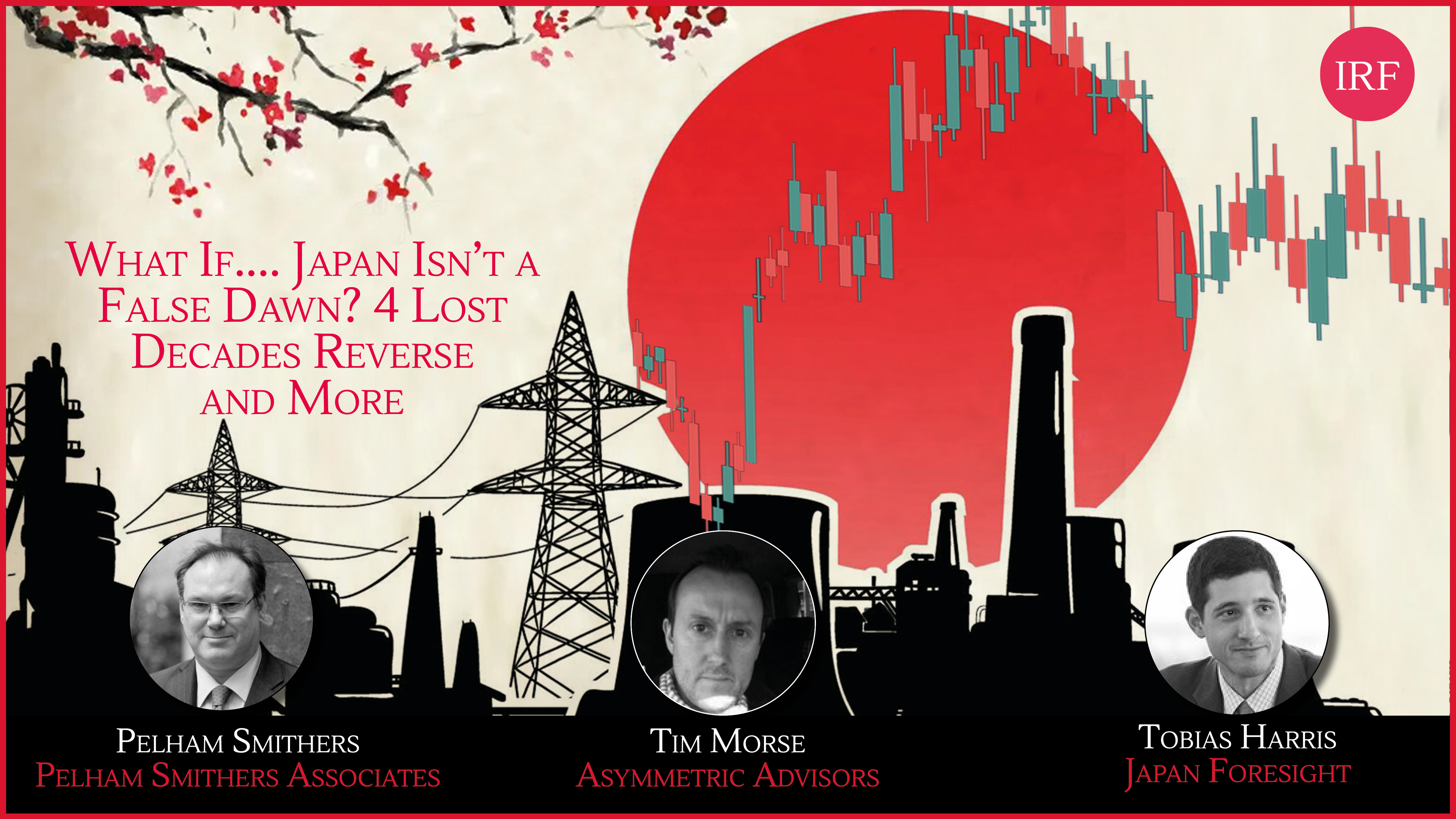IRF Education: What If......Japan Isn't a False Dawn? 4 Lost Decades Reverse and More
Pelham Smithers Associates
Asymmetric Advisors
Japan Foresight
Tue 25 Jun 2024 - 15:00 BST / 10:00 EDT
Summary
Tobias discusses the political challenges facing Prime Minister Kishida, highlighting the diminishing support from public opinion, LDP lawmakers, and local chapters. With approval ratings below 20%, Kishida's leadership appears unsustainable, and his reliance on factional support has weakened. Tobias predicts growing pressure for Kishida to step aside after the summer, leading to a potentially contentious LDP leadership race. He outlines possible contenders across three main factions: reformists, mainstream figures, and conservatives, all with their own vulnerabilities. Despite the potential turmoil, Tobias credits Kishida with significant policy legacies, including a shift towards economic security and Japan's increased role in global security amidst a de-globalizing world. Tim discusses the performance of the TOPIX index in 2023, noting its rise by nearly 50%, but highlighting that in US dollar terms, it lags behind the S&P 500, largely due to currency effects. He questions the appeal of Japanese investments for dollar-based investors, considering Japan’s strong correlation with a weaker yen, and explores the impact of corporate reforms, private equity interest, and geopolitical dynamics. Tim suggests Japan's market could benefit from stable or stronger yen, improved corporate efficiencies, and growing activism, though challenges include competition from China, economic uncertainties, and the potential for plateauing market growth. Pelham discussed the impact of quantitative easing by the Bank of Japan on the stock market, noting that while QE has boosted stock prices and economic growth, it hasn't significantly increased company profits compared to expectations. Japanese firms have improved profitability since 2003, leading to higher dividends and share buybacks, but the market remains undervalued relative to historical performance. Pelham highlighted concerns about Japan's high government deficit and demographic challenges, which could strain economic stability. Despite recent positive trends, Pelham warns that the shift away from QE and rising interest rates could lead to market volatility, emphasizing the need for active, rather than passive, investment strategies in Japan.
Topics
Is real change taking place in Japan or is it another false down? Are promises of reflation, rate normalization, better corporate governance and unwinding of cross-shareholdings going to be realised, and if so what does it mean for the Nikkei? At its 1989 peak bubble, Japanese equities represented 45% of world stock market capitalization vs. 33% for the US, today those figures are 5% and 43% respectively.
Japan can no longer be overlooked, and its 5% weighting looks wrong. Is the weak Yen a problem or a ploy? Has real change been effected and if so, will the reflation trade driven a doubling of Japanese banks? How does Japan stack up on the Tech and AI front? Is the Nikkei doubling since 2020 Covid-lows an apparition or the start of a long-term trend? Join IRF's panel of experts on June 25 to discuss how Japanese politics, corporate governance, equity and economic outlook rate in a global context, and explore some of these critical questions.
